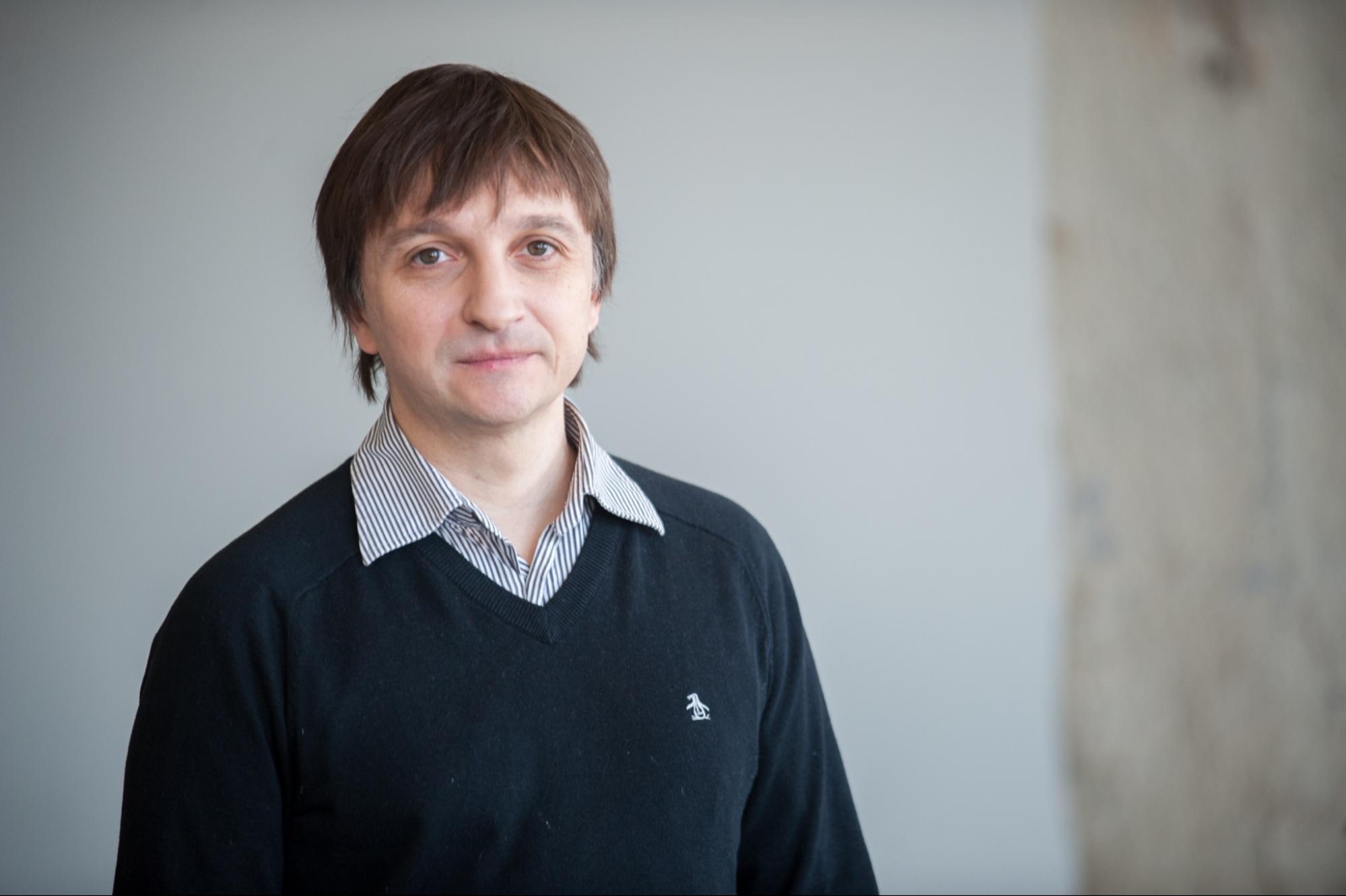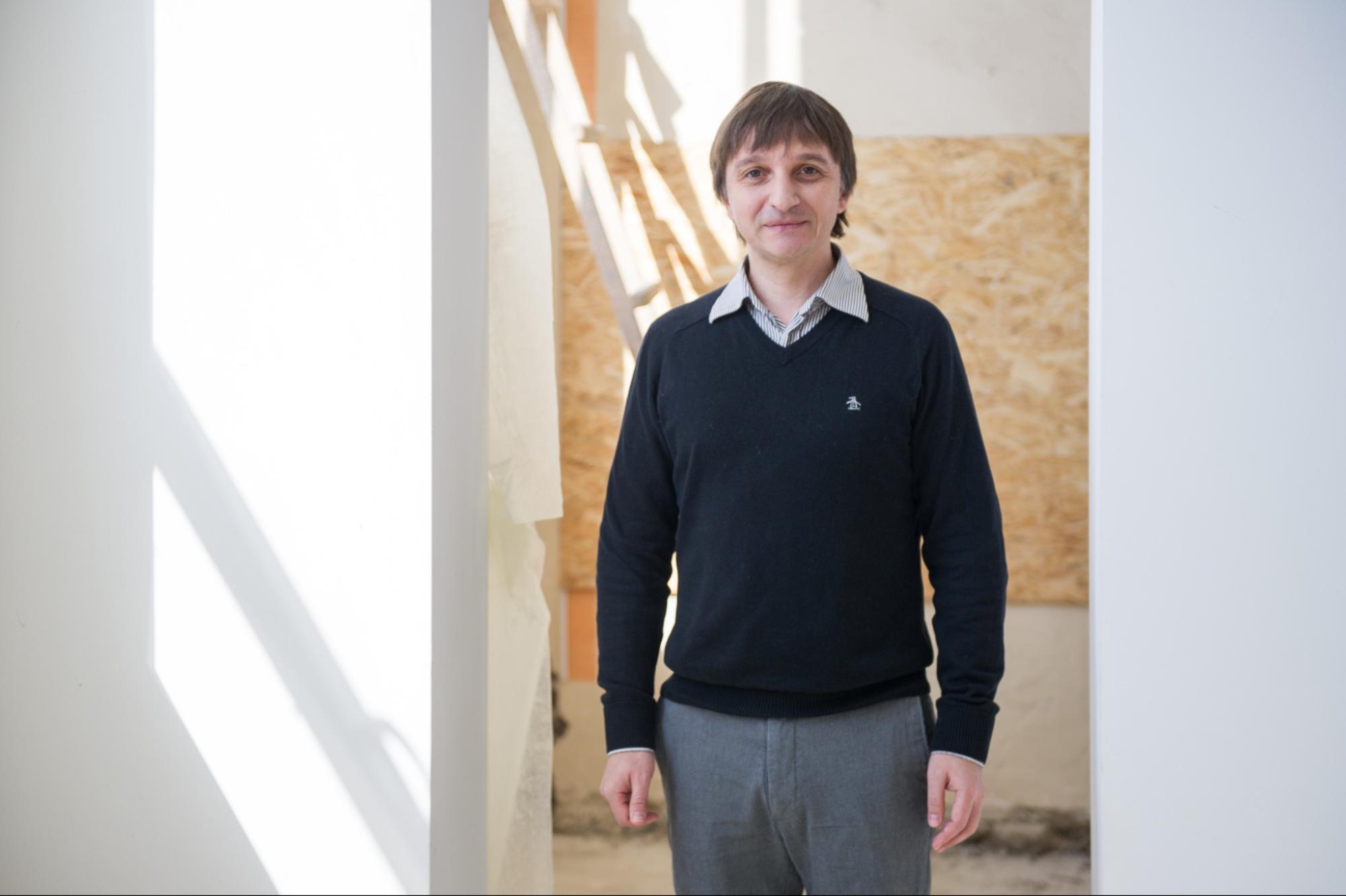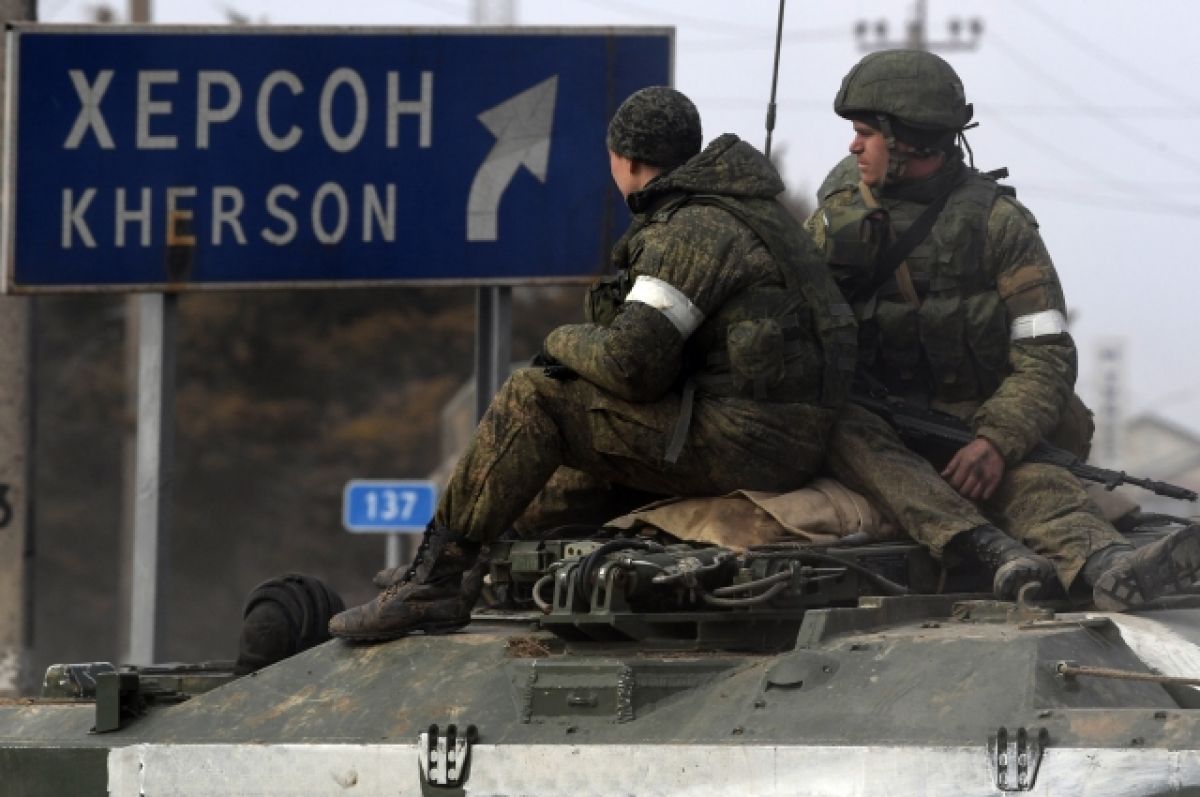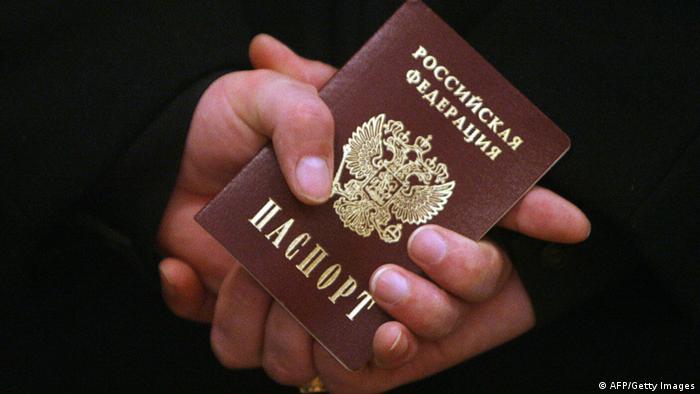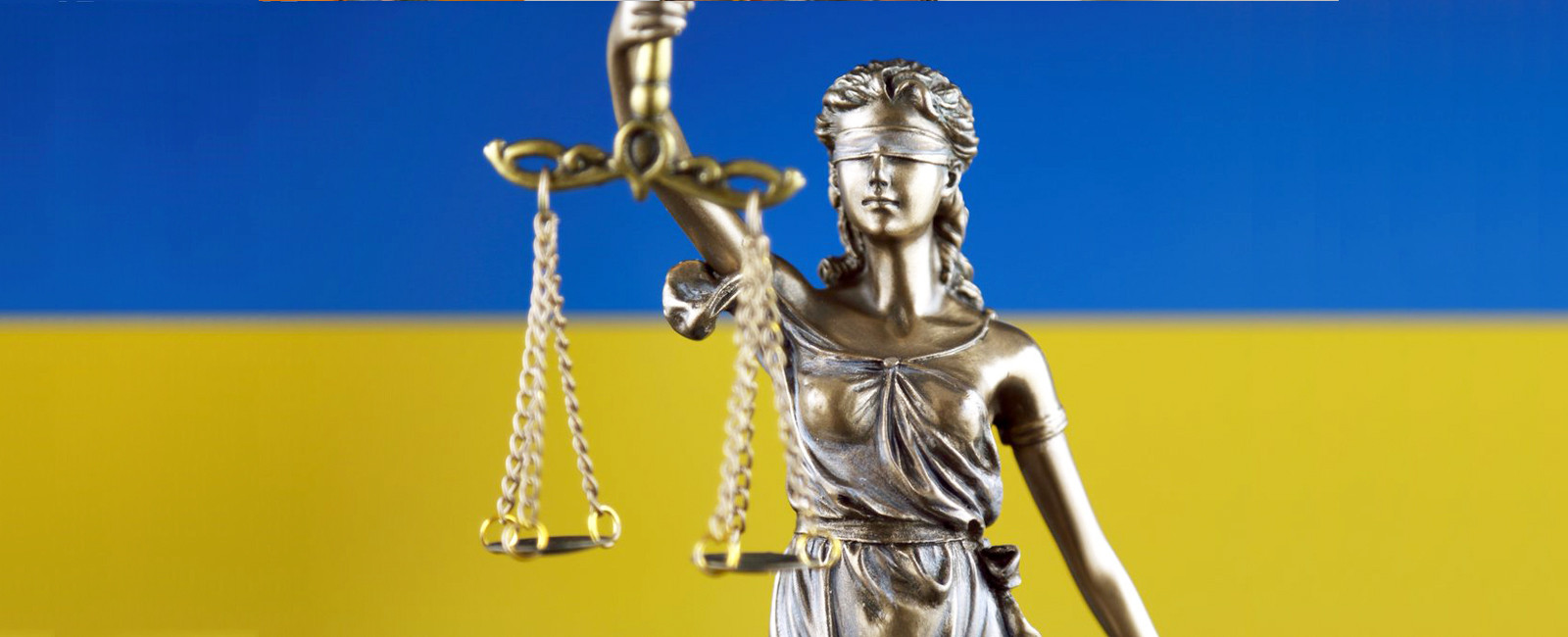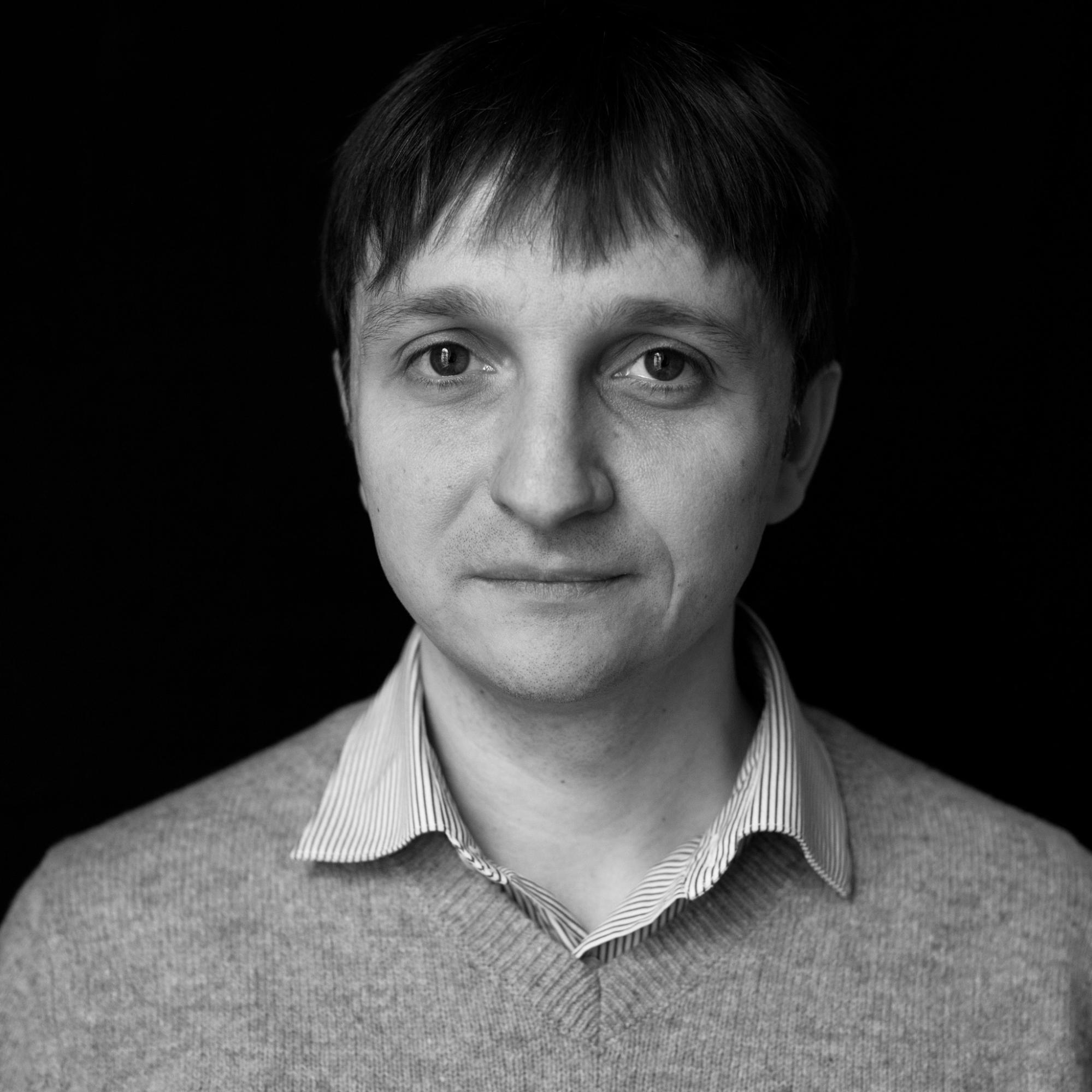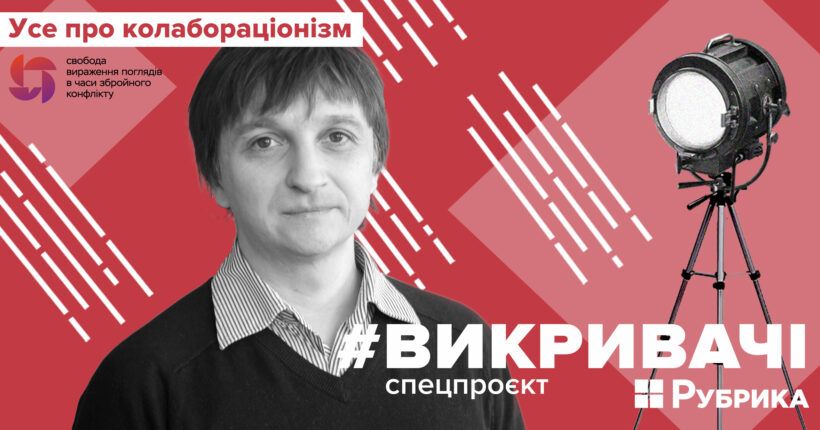
During almost five months of russia's full-scale war in Ukraine, Ukrainians learned the names of people who were supporters of the "russian world." These people waited with open arms for the russian occupation forces in their cities. What's worse, they volunteered to embrace positions offered by russians and thus became collaborators in the temporarily occupied Ukrainian territories. For example, former MP Oleksii Kovaliov, suspected of treason and aiding and abetting, organized the export of salt and grain from the occupied Kherson region to russia. In addition, he joined the occupation "government" of the Kherson region, where he assumed the position of the so-called "deputy head of the government for agriculture." There are enough stories to estimate collaborators' role in occupying Ukrainian cities and villages.
At the beginning of April, Oleksii Danilov, National Security and Defense Council Secretary, stated that the list of collaborators would be made public in Ukraine shortly. According to Ukraine's Security Service (SBU), 1,500 applications about collaborators have already been received through the eVorog chat [Telegram bot created to report the collaborators and any info regarding occupiers, ed.] as of July. At the same time, the National Agency for Prevention of Corruption (NAPC) also helps the SBU identify those who collaborate with the enemy. To date, a database has been created with 245 officials who may be helping russia. In addition, now the Ukrainian parliament is considering confiscating the property of collaborators in favor of the state.
To fight against traitors and agents of the enemy, the parliament adopted a law that strengthens and supplements the Criminal Code of Ukraine with Article 111-2, "Aiding the aggressor state." According to the human rights community, changes to the law are essential and timely. Still, there are many questions about the effectiveness of this article, particularly concerning people living in the temporarily occupied territories of Ukraine. What should they do not to become involved in criminal proceedings about "collaborationism," what jobs and positions will be considered cooperation with the enemy? What about receiving a salary in rubles? We talked about this with Volodymyr Yavorskyi, a human rights activist, Center for Civil Liberties expert, and board chair of Docudays UA International Documentary Film Festival on Human Rights.
Who are collaborators?
— Who are collaborators according to Ukrainian legislation? And who are these people personally for you?
— Regarding collaborative activity, there is Article 111 in our Criminal Code. The law defines seven categories of collaborationism, but there are many questions regarding this law and the terms used. Now there are extensive discussions about who should be responsible for what activities. There are two categories of persons:
- Those who were in the unoccupied territories and carried out some activity,
- And those in the occupied territories helping the russians or supporting them, and after the liberation of these territories, they will be caught and punished accordingly.
Today, the situation is such that at least 35 people, who became known from unclassified court decisions, have already been punished for this crime. But! They are quite comical because they refer to paragraph 1 of the article, "public denial by a citizen of armed aggression, which is punishable by deprivation of the right to hold certain positions or engage in certain activities for 10 to 15 years." First, it is a bizarre punishment; second, people who don't hold any positions are punished for it. Most of such cases are in Zhytomyr and Vinnytsia regions. Why? I can't explain. I think that law enforcement officers are simply making indicators for statistics.
Based on this article, there was one utterly comical case when a person in the Kharkiv pre-trial detention center was convicted. He had turned to his fellow inmates in his cell and said that russia did the right thing by attacking Ukraine. This person was convicted and deprived of the right to hold certain positions. Of course, he didn't have them in his life and did not intend to.
In another case, an entrepreneur got a sentence that he cannot hold positions in state authorities for ten years, although he had never held them in his life. That is, all the decisions concern not subjects of power but ordinary people who blurted out something to someone somewhere, or it is unknown whether they said something or not. In most verdicts, there is an agreement with the investigation. People admit their guilt, are given ten years of ban on holding positions, and continue to live their lives.
There's another category of people, but their fate is unclear both in the Ukrainian-controlled territory and in the temporarily occupied one. For example, there was a court decision about collaborationism and all its indications, but everyone was sentenced to probation. Here we are talking about people who worked for the russian administration and were representatives of local self-government in the Kharkiv region, in the districts that were captured and later liberated. They worked for the russians; one person even passed the Ukrainian positions to the enemy, and at the same time, he was sentenced to 5-year probation for two years, and he's still the head of the village.
— Why is this happening?
— For me, it is an absolute mystery why it is happening and why we observe such softness of Ukrainian justice. I know many cases were initiated about Kherson against police officers, judges, prosecutors, and security service employees, and there are cases against school principals. These people surrendered accurate Ukrainian positions and then worked with the occupiers. It's the heaviest form of collaborationism imaginable.
As for the school employees, I believe it's justified because the russian occupiers want to start a russian school curriculum there with russian textbooks from August. If a person works as a principal, we can discuss collaboration here. But if later the law enforcement punishes, for example, teachers who taught mathematics, then, in my opinion, it will be an apparent overkill. Unfortunately, the Criminal Code's article about collaborationism is vague. For example, it says, "the implementation of propaganda by a citizen of Ukraine in educational institutions." The word "propaganda" can mean anything; it is a rather vague term. The courts now consider propaganda cases quite superficially. Often, people are prosecuted for practically nothing.
Treason, collaborationism, and bad management decisions—what's the difference?
— Why is the legislation so vague and has a broad definition? Does it benefit anyone?
— I believe the state can punish if we're talking about calls for specific actions that can undermine Ukraine's ability to fight, but you cannot punish for words like "putin is better than Zelensky." In the legal field, it's very close to the term "treason" because the articles on collaborationism, to a greater extent, fit into the concept of "treason."
There are several reasons for a separate article on collaborationism to appear:
- First, some politicians wanted the punishment to exist.
- Second, our parliament now produces low-quality decisions; that's what I call them. Globally, there's no unified state policy in the country. We have no vision of which actions should be punished and which should not. This chaos manifests itself in many decisions. For example, its manifestation is very vivid in the issue of conscription and mobilization. One degree is announced in the morning, and another announcement is made in the evening.
- Third, everything rests on the fact that the law enforcement officers have statistics that show how many people should be charged under which article. No one is particularly interested in what crimes and what people these will be. There are serious doubts about the quality of these investigations, and no one is pursuing them. The best thing for law enforcement officers is to find a case so that the person still admits their guilt so that there is an agreement with the investigation, and there will be an immediate decision that the person can be punished.
Society has a request to punish those guilty of mistakes. But we forget that we are fighting against an army several times bigger than us. Some territorial losses are objectively possible. Yes, there were mistakes in the Kherson region, and they are apparent, and they say that they detained precisely guilty SBU employees. For 20 years, Kherson activists have been saying that the russian army is hiding there and that it is all controlled by the russians. So, for example, the Handziuk case [Kateryna Handziuk, killed Kherson activist, ed.] raised all this crap in the Kherson region. But no one paid attention to this. We don't have a system policy to clean this up. It's difficult to separate a wrong managerial decision from a collaborative one. For example, for a long time, we were in a trial in the case of the IL-76 plane that was shot down in Luhansk in 2014—was it a wrong management decision, or was the plane raised on purpose to be shot down? In my opinion, you can punish only those actions with genuine cooperation with the russians, not where you make mistakes. Many people make mistakes.
"It's difficult to separate a wrong managerial decision from a collaborative one. For example, for a long time, we were in a trial in the case of the IL-76 plane that was shot down in Luhansk in 2014—was it a wrong management decision, or was the plane raised on purpose to be shot down? In my opinion, you can punish only those actions with genuine cooperation with the russians, not where you make mistakes"
— Does the human rights community understand how to distinguish a wrong management decision from collaborationism? If it were possible to rewrite this article or improve the law, what criteria should it contain?
- There must be a clear connection with russia. Conventionally speaking, there must be a russian customer who dictates to a person what to do.
- Suppose a person commits the crime on their own or incites others to commit any violent or illegal gross acts. For example, they call to storm the police department. In this case, it is vital to understand who provides the resources. For instance, in the Kherson region, several Internet providers have entirely switched to the working conditions of russians. I believe it's collaborationism. Locals have a request for these investigations, but the authorities don't have a request to punish these people. Most likely, they only want the territories to be liberated, and we will keep most of the guilty on the hook.
— In your opinion, have we reached conclusions regarding the punishment of collaborators in the eight years of war in eastern Ukraine?
— The fact that the experience of 2014 did not teach us anything is Avakov's mistake [Arsen Avakov, Ukraine's former Interior Minister, ed.]. He "covered" the entire power division, and that was precisely the problem: no lustration took place. However, this problem existed even earlier because lustration trials had to be held after the USSR. Many KGB officers, police officers, and judges worked in Soviet times; some now continue to work in their positions. Many of them are criminals because they organized repression against their people. If we purged these people at the time…
Now I think the authorities don't want these mass trials. For example, in the discussion about the dismissal of [Prosecutor General] Venediktova, one argument was stated about why she was fired: she forced cases against russian soldiers. Although these cases were terrible from a legal perspective, the authorities still said they were spoiling everything for them because they did not allow exchanges to be carried out. I agree that we should do everything to get people out of captivity. However, I still see that we are not ready to create a system that would purge society at the level of this collaborationism and all those who supported aggression. For this, an independent investigative body, an individual prosecutor's office, and separate courts should be created because there are more than 20,000 war crimes cases. Even if the Ukrainian legal system postpones all its cases, it will need three to four years to consider only collaboration cases. The government is not doing anything to solve this issue somehow. I suspect they are prepared to say that there will be some kind of truce or even a micro-amnesty for certain people. Perhaps they will demonstratively punish a dozen officials and everything.
— What should change so we don't step on the same rake again?
— It is necessary to build a system of justice from the investigation to the courts, which would deal with the search for those guilty of all war crimes, not only collaborators. Ukraine should join the Rome Statute of the Criminal Court. It means significant changes to the Criminal Code of Ukraine. Currently, the Ukrainian Code does not contain many international crimes.
Also, the state should remove the statute of limitations for many crimes. Usually, in crimes, the statute of limitations is 10-15 years, which is very little for war crimes. We need to search for criminals for a long time to pursue them, like the Jews who still seek those who worked in concentration camps. Yes, it should not be done for all crimes, but there is a set of 20-30 crimes that we cannot forgive. To date, we have only a chain in the prosecutor's office regarding investigating these crimes. We do not have this in the investigation because the investigation is carried out by whoever. Also, many of these crimes are new to our courts. They do not know how to classify them or what evidence to collect. And it may happen that most of these cases will end before the European Court of Human Rights. It will be a shame and a political disaster if Ukraine convicts many people and eventually starts losing cases at the ECtHR.
Collaborationism and the occupied territories
— Are people who live in the so-called "Donetsk People's Republic" and "Luhansk People's Republic" collaborators?
— I think that people are not collaborators. For example, I have my experience of living in a totalitarian society—I lived in Belarus for some time, and I understand the mass of the population who live there, go to work and do not play a significant role. After all, it doesn't matter how they vote; they are just tools. For instance, if a person did not participate in any repressions but worked in a mine, then I believe we cannot punish them. If a person managed some things, engaged in violence, or committed crimes, they must bear responsibility. They are an international criminal, and there can be no forgiveness. In other levels of crimes, for example, as regards the head of the utility service, this person was also involved in leadership, it may not be about criminal punishment, but lustration so that a person is deprived of the right to hold certain positions for part of their life. Therefore, I think there should be gradations of attitude towards the people there.
— People have already begun to forget 2014 and the beginning of the occupation of Luhansk and Donetsk. Let's remember. What role did the collaborators play in the occupation of Donbas?
— I think it is very insignificant because the russian military made the main captures. Those soldiers, SBU employees, who went over to their side, can be called russian soldiers because they were recruited earlier. Their transition was formal. If there were no russian military there, no "L/DPR" would exist today. Yes, some were radically against everything happening there, but they would never go to an armed uprising, create an army and seize the territory. The russian military carried out the seizure.
— Are there precedents when at least one of the collaborators was punished and held accountable at the time?
— There were quite a lot of such sentences. These people were often caught at roadblocks. I remember that I counted more than 100 sentences, but all of them were written as if on carbon paper. For example, a person "participated in the referendum" or "stood at a roadblock." As a result, they received five years of imprisonment with 2-3 years of suspension. That is, they all did not receive actual sentences. At that time, I believed the state exchanged these people for Ukrainians who were prisoners of the "L/DPR." I think few people would have received real terms or those who would be sitting in a Ukrainian prison at the moment.
Is obtaining a russian passport collaborationism?
— What about the people who stayed in the territories of the Kherson region, Luhansk region, and Donetsk region temporarily occupied by the russians? Will they be considered collaborators? How can they not become involved in criminal proceedings about "collaborationism"?
— Living in this territory is not a criminal offense. Recently, Minister Iryna Vereshchuk said that obtaining a russian passport is a crime and is considered treason, but it is not the case. Getting russian documents is not a crime because the russian military commits the crime and forces people to obtain this passport.
"We need to look at each person's role individually, regarding who participated in opposing the Ukrainian authorities. For example, he handed over maps, issued lists of those who served in the Ukrainian forces, etc."
— How to prove that the person obtained this russian passport under duress?
— In the occupation, people have no choice. For example, they are not allowed through checkpoints without russian passports. Either you sit at home and cannot go to the store, or you will have to get this passport. Everything is aimed at the fact that a person could not function there without a russian passport. Therefore, the mere fact of obtaining a passport cannot be considered a crime.
I think it will be about those who currently perform some serious functions in the occupation being accountable before the law. It will mainly concern judges, police officers, and those who worked in the civil service. If a referendum is organized, all these people can be accused of collaborationism, and I think we will justify it. The punishment will depend on the role in each case because sometimes the position can be passive. For example, there is an occupied village community in the Kherson region, where the village head stays and performs the functions provided for by the position. In principle, we can consider it the performance of administrative procedures under occupation, which formally falls under the criminal article. But at the same time, this person does not fulfill any special orders of the occupation administration. Therefore, we need to look at each person's role individually regarding who participated in opposing the Ukrainian authorities. For example, he handed over maps, issued lists of those who served in the Ukrainian forces, etc. So, one of the problems in Kherson is that the russians received lists of people who served in the army, police, and SBU.
Nurses, teachers, and critical infrastructure workers in the occupied territories
— Will the work of, for example, nurses in temporarily occupied Kherson be considered cooperation with the enemy?
— I think not. Such people belong to the occupied civilian population. They should be considered victims of international crimes committed by russians. These people need, first, to survive in this territory. Second, imagine that we are talking about a physician. Who does this doctor currently serve? Most of the doctor's patients are older adults or people with disabilities who were physically unable to leave. But if the doctor goes to treat the russian military, then it is collaborationism. Responsibility must always be individual. We cannot generalize all doctors, teachers, company directors, etc. It is necessary to look separately at the role of everyone in collaborationism. If we want to investigate this, we need a whole justice system because every person needs to be examined. On a national scale, imagine what volumes of work we are talking about! That is why I believe that now no one is ready to punish people for collaborationism. Maybe a few cases are indicative, and that's it.
— And if we are talking about critical infrastructure workers?
— For example, there are different employees at the nuclear plant. One employee was beaten and died, the second was working, and the third gave away all the secrets. So those who gave away the secrets did what was not required of them; they did more than the standard exit to work. It is a collaborative activity because they started cooperating with the russians. Yes, there may be various reasons to do it. But if a person gave away all the company's secrets and this territory became vulnerable after that… Collaborationism always has different levels. I think they will not be punished because people just went to work. But if there are facts that they leaked some information, it is collaborationism.
— Concerning the teachers who work in the occupation. For example, only the teaching language can change for a mathematics and physics teacher, but what about the history teacher? They may need to teach with historical information changes.
— With history teachers, it is evident when we can find out everything. But I suspect that even teaching from russian textbooks in our country will be interpreted as propaganda, and the state will punish people for that. I still believe it is not the level of collaborationism for which criminal responsibility or punishment should exist. Although on the other hand, no one forces them to teach children. Of course, finding yourself without a job is difficult, but such education is, in a certain sense, child abuse. It is evident to me that the principals of the schools and the deputies in charge of educational work who will conduct school gatherings and info hours should be punished. But I suspect that the maximum punishment they will receive is a ban on working in schools. But it will be enough if a person is deprived of the right to engage in teaching activities for the rest of their life. At the same time, these people can engage in tutoring. As for the Donetsk and Luhansk regions that have been occupied for eight years, it will be necessary to change the teaching staff of educational institutions, from kindergartens to universities. Maybe not all of them will have to be fired, but they will have to be observed. Let people work if they can adjust and teach what we need. The main thing is that there should be no concessions or indulgences here because this is an area where we can no longer lose.
— We have cases when mayors or heads of communities are taken prisoner and forced to cooperate with the occupation authorities. Does this count as collaborationism?
— I would not consider it a crime when people are forced to perform their functions as village heads. Yes, these people could run away; many ran away, even after being captured. But everyone has their circumstances. If a person went over to the side of the russians voluntarily and publicly covered it, then it is already a greater degree of responsibility. However, it is still necessary to find out what this person did.
Who and how will determine collaborators?
— Who recognizes a person as a collaborator? And under what conditions does a traitor get this status?
— It is determined by the court when a person is convicted of a relevant crime. Although the quality of court decisions today is deficient, judges are often afraid, there are often no lawyers in cases, and they often come to an agreement with the investigation, where the person admits guilt. Another problem is that many criminal cases are classified as "secret," so we do not know what those cases are about.
— After the liberation of our territories, how will the authorities determine whether a person was a collaborator?
— I think that, first, they will look at those who performed state functions; they are no longer collaborators but state traitors. But our legislation is such that some of those classified as collaborators are state traitors. In the last instance, the case will reach teachers and other persons who transferred material values and held certain positions in various bodies. There will be extensive discussions about what jobs a person should have. The Ukrainian Themis will not be able to digest thousands of people who held public positions in state institutions, enterprises, and local authorities. It will be more than 10,000 people in the Kherson region alone. I suspect that processing many criminal sentences will be impossible for the Ukrainian legal system.
— Then how, in your opinion, can the system be cleaned, given such a large number of collaborators?
— We like "simple solutions." Therefore, I believe the state will pass a lustration law, prohibiting people who held specific categories of positions during the occupation from holding positions for a certain number of years.
"When people report on the deployment of Ukrainian troops, that is, they work as spies and then receive probation sentences or minor punishments, even though bombs are dropped, and there are casualties, due to their actions, it is unacceptable. If there is a direct connection between a person and a situation where someone died, or the shelling caused severe bodily injuries, the person should bear criminal responsibility"
— In your opinion, is it a sufficient punishment for such collaborative activity?
— There are cases when people report on the deployment of Ukrainian troops. That is, they work as spies and then receive probation sentences or minor punishments, even though bombs are dropped, and there are casualties due to their actions. In other words, we generally have an illogically constructed system of penalties. I believe that if there is a direct connection between a person and a situation where someone died, or the shelling caused severe bodily injuries, the person should bear criminal responsibility. But we still do not have a unified policy on this; no government body is involved in formulating this state policy and is promoting such an idea, saying that for a particular crime, one should give a specific number of years.
For example, in our country, the russian Shishimarin was given the maximum punishment possible under Ukrainian law, given that he admitted his crime. He killed one person and refused to kill other civilians, doing his best to cooperate with the investigation, but he received a life sentence. What should we give, for example, to a russian who killed 20 Ukrainians, created a concentration camp, killed children in some area, or shot a family? We have already used the maximum penalty just for PR. A 10-year prison term would be an adequate punishment for Shishimarin. In other cases, we have highly lenient punishments, which I cannot explain. We need to understand why there are such lenient punishments, and I do not exclude the possibility of enormous corruption. Perhaps people are being bought off, and specific payments are made on the spot because all these decisions cannot be reviewed; there are tens of thousands of cases, and corruption will be present.
— How are similar crimes investigated abroad? Perhaps we should borrow international experience in this matter?
— It is difficult for us to compare because there were no such wars in civilized countries; such wars usually occur in Africa. The last such war was in the Balkans. And the Balkans just missed this moment. For example, Serbia did not punish people at the local level. Apart from people punished by the Tribunal for Yugoslavia at the highest level, except for several hefty military punishments at the middle level, no one was punished at all at the lower level.
"Justice is to see that your offender at least apologized to you and suffered at least a nominal punishment"
— I'm not sure that Ukrainians can withstand such a thing psychologically.
— That is why we are now trying to convince Ukraine to do justice. First, it is a request for justice, and people will see it. Everyone on the spot must see that there is justice and that whoever committed a crime against them will be punished. Justice is not that you will be paid compensation, although it is not yet clear how the state will implement it in this regard. People themselves are dismantling the rubble and rebuilding their houses. The state is currently not participating in this, and it is not yet clear how it will deal with this. In my opinion, justice is to see that your offender at least apologized to you and suffered at least a nominal punishment.
— How can an average person determine that another person, for example, a neighbor, is a collaborator?
— So far, people are being punished for speaking about a "special operation," for the statements like "putin is coming to liberate us," and "Ukraine is not independent, and 2014 was a coup," "we don't have a Ukrainian government, and russian troops want to restore the Ukrainian government." It is all a sign of denial of russian aggression and denial of facts, for example, the events in Buch, Irpin, and Hostomel and the bombing of cities by russian troops, and the idea that it is Ukraine that is bombing itself. These are classic examples of statements that are false testimony that support this aggression or do not recognize russian aggression at all. These are the first signs of collaborationism, according to the Criminal Code.
— Where to turn if you suspect a person of being a collaborator?
— The SBU investigates these cases, and the police also deal with them.
Newsletter
Digest of the most interesting news: just about the main thing





